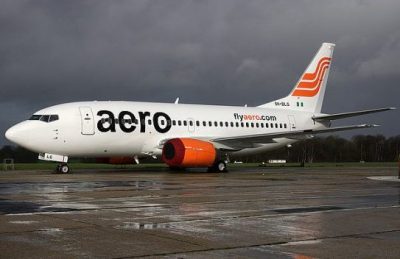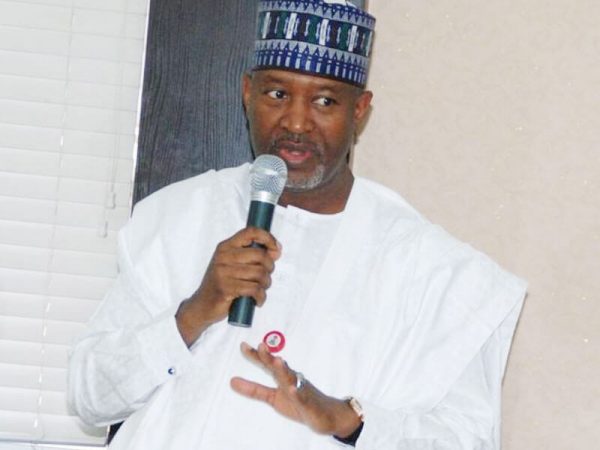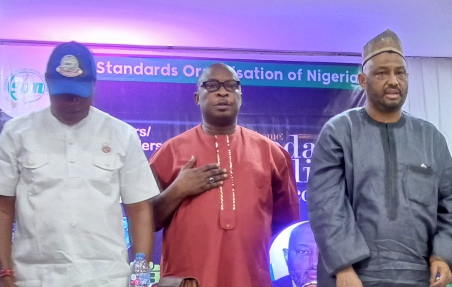Why Ilegal Refineries Thrive In Niger –Delta—Nigerian Navy

In spite of the Federal Government’s efforts at curbing the incidence of oil theft in the Niger-Delta by integrating illegal and local refineries in to the proposed modular refineries initiative, the Nigerian Navy has said that illegal refineries will continue to thrive in the region because of its economic benefits.
According to Rear Admiral Adeniyi Osinowo, the Flag Officer Commanding the Naval Training Command, it costs conservatively 18million Naira to set up one illegal refining site and make it operationally profitable.
MMS Plus findings from the Department of Petroleum Resources (DPR) showed that an operating license fee for a modular refinery in Nigeria costs $500, 000 (N200 million). This cost, excludes the running and equipment costs, making the choice for illegal refinery more attractive because of the investment gap.
Admiral Osinowo who is also on the Board of the Nigerian Maritime Administration and Safety Agency (NIMASA) also noted while speaking at a function in Abuja recently that “illegal refining is a big business now with the subdued activities of the Niger-Delta Avengers, and other militants activities in the region. It comes with a huge price because any land space used for illegal refining cannot be recovered for use in the next 60 years not to talk of the environmental issues involved.
“We did a conservative estimate of what it takes to put up an illegal refining site and we arrived at N18million. That means that it is not a poor man’s business. The local refiners are sponsored and if this continues we will not have where to go back to.” He added.
Therefore, with a total of 2,431 illegal refineries destroyed in Niger-Delta states of Bayelsa, Delta and Rivers between the year 2013 and March, 2017, the Joint Militant Task Force (JTF) in the region has destroyed N43,758, 000, 000 billion worth of illegal refining sites, making the integration initiative very exigent if it is feasible.
The integration initiative was first broached by the Minister of state for Petroleum Resources, Dr. Ibe Kachukwu, as an outcome of the presidential interactive engagements in several oil-producing states led by the Acting President, Prof Yemi Osinbanjo.
Under this concept, the local refineries and modular ones would not be left to operation parallel basis, as the Federal Government would supply crude to the local refineries at a reasonably considered price as an incentive to stop the current practice where illegal refiners vandalize and steal the crude.
The initiative would also prevent the environment degradation that pills and damage the trunk lines have been causing.
Experts said it was good to integrate the illegal refiners which Presidency and the Nigeria Sovereign Investment Agency, NSIA is spear-heading and considering on how to achieve the purpose, rather than a scorched-earth policy that seeks to eliminate the operations of such refiners. A modular refinery is a refinery made up of smaller and mobile parts- (skid-mounted)- that are more easily fabricated and can be more quickly transported to site.
They come in different sizes with varying capacities normally lower capacity than conventional refineries with more elaborate and complication set-up. Under the plan being considered in the presidency, the Federal Government could supply crude to the local refineries at a reasonably considered price, as an incentive to stop the current practice whereby the illegal refiners vandalise and steal the crude.
This concept would also prevent the environment degradation that the spills and damaging the trunk lines have been causing. Also, marginal field operators can also supply crude to the new modular refineries that would have the illegal refiners integrated. Another important component of the plan under consideration is to involve the current illegal refiners and their communities as shareholders while the NDDC and the NSIA will also hold substantial holdings/equity sufficient to make the smaller refineries operational as a business and a going concern.
To facilitate effective community engagements, a Memorandum of Understanding, MOU, would be established under the plan with the affected communities determining the communities share, while the FG would supervise the implementation, which would be driven largely by industry operators and the communities. But in actualizing this objective, Presidency sources explained that there were a number of significant hurdles to be crossed especially issues around the engineering and technical ramifications of such a conversion, besides figuring out the financial models that would be workable and profitable.
The technical and engineering implications of how to integrate the refiners were however discussed with industry experts and practitioners who made presentations on how to implement the modular refinery at the meeting recently.
According to a Presidency top source, experts at the meeting later reported that they had worked closely with the Nigeria National Petroleum Cooperation, NNPC, Oil & Gas operators, owners of marginal fields, operators of refineries and various technical services providers “to develop a workable system to develop this initiative”.







